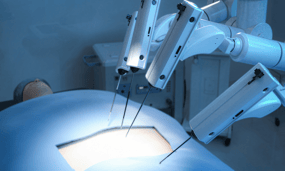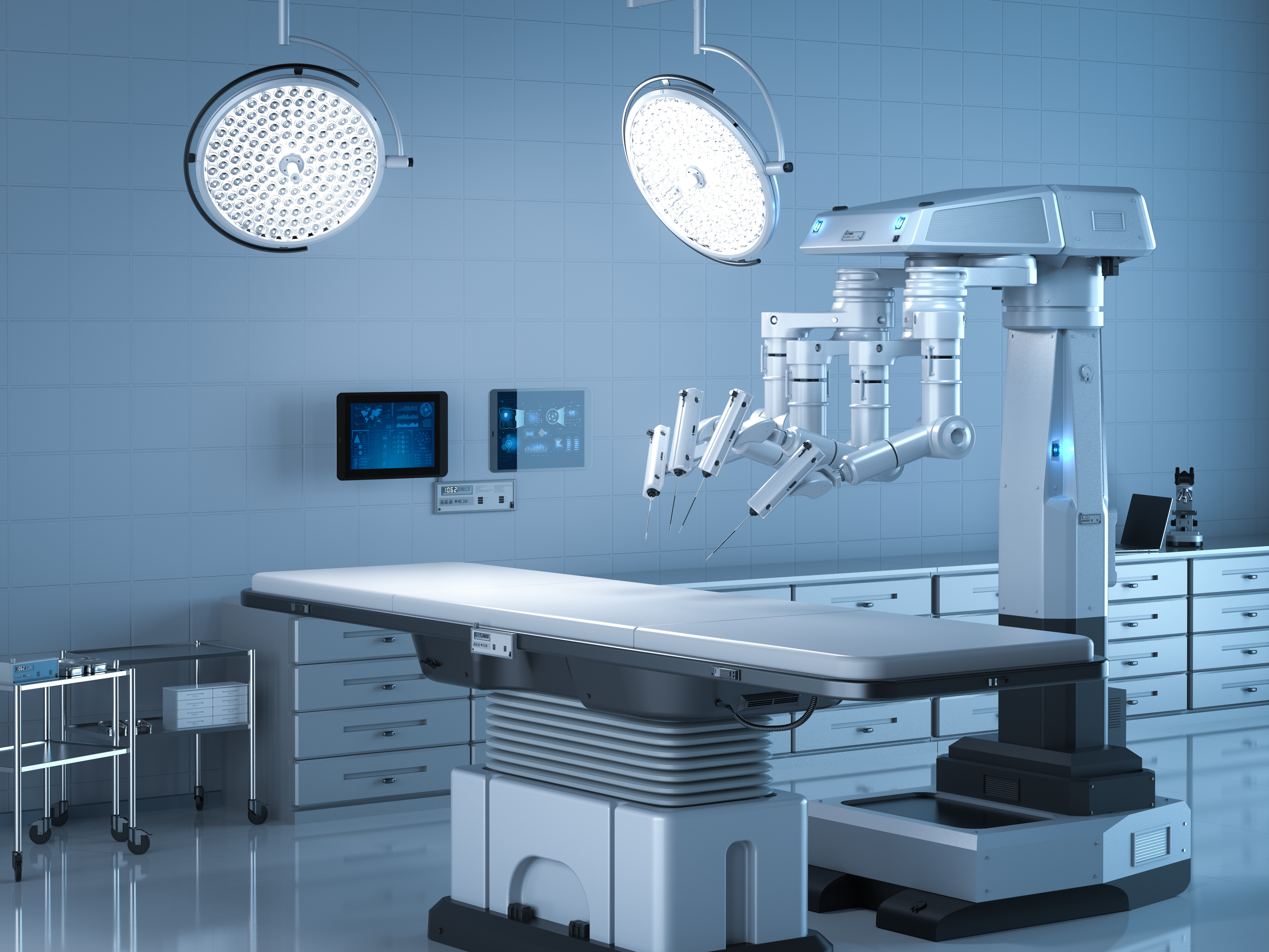Revolutionizing Precision Surgery: The Role of Robotics in Modern Healthcare
In the rapidly evolving landscape of modern healthcare, one of the most groundbreaking advancements is the integration of robotics into surgical procedures. Surgical robotics has ushered in a new era of precision, transforming the way intricate procedures are performed, minimizing invasiveness, and significantly improving patient outcomes. This innovative technology has redefined the capabilities of surgeons and the quality of care available to patients, marking a monumental shift in the field of medicine.
Precision Redefined
Traditionally, surgical procedures, no matter how skilled the surgeon, carried inherent limitations due to human dexterity and precision. However, with the advent of surgical robotics, these limitations have been overcome. These robotic systems .png?width=311&height=186&name=Simulation%20(1).png) offer unparalleled precision, often surpassing the capabilities of human hands. They allow for minute, controlled movements with reduced tremor, leading to more accurate and reliable surgical interventions.
offer unparalleled precision, often surpassing the capabilities of human hands. They allow for minute, controlled movements with reduced tremor, leading to more accurate and reliable surgical interventions.
The utilization of robotics enables procedures that were once deemed too complex or risky to now be performed with enhanced accuracy. Delicate surgeries in areas such as neurology, cardiac procedures, and microsurgeries have witnessed a notable improvement in precision, leading to better surgical outcomes.
Minimizing Invasiveness
A critical aspect of surgical robotics is its ability to facilitate minimally invasive procedures. These techniques reduce the size and number of incisions required, leading to decreased trauma to the patient's body. By using smaller incisions, patients experience reduced pain, faster recovery times, and minimized scarring compared to traditional open surgeries.
 Robotic systems with their slender, flexible instruments and high-definition cameras can access hard-to-reach areas with greater ease, allowing surgeons to navigate complex anatomies with precision. As a result, patients benefit from shorter hospital stays, reduced risk of infection, and quicker rehabilitation, ultimately improving their overall quality of life.
Robotic systems with their slender, flexible instruments and high-definition cameras can access hard-to-reach areas with greater ease, allowing surgeons to navigate complex anatomies with precision. As a result, patients benefit from shorter hospital stays, reduced risk of infection, and quicker rehabilitation, ultimately improving their overall quality of life.
Improving Patient Outcomes
The integration of robotics in surgery has significantly enhanced patient outcomes across various medical disciplines. With improved precision and reduced invasiveness, there is a decrease in complications during and after surgical procedures. Patients undergoing robotic surgeries often experience lower blood loss, fewer transfusions, and reduced post-operative pain.
Moreover, the recovery period post-robotic surgery is notably shorter, enabling patients to return to their daily activities more swiftly. This not only alleviates the physical burden on patients but also lessens the emotional stress associated with prolonged recovery times.
The Future of Precision Surgery
The role of robotics in modern healthcare is continually evolving. The future holds even more promise as advancements in artificial intelligence (AI) and machine learning contribute to the refinement of robotic systems. These developments aim to make robots more intuitive, allowing them to adapt to diverse situations and learn from previous procedures, further enhancing precision and patient outcomes.
As the field of surgical robotics continues to progress, the integration of haptic feedback, augmented reality, and remote surgery capabilities may become more commonplace, expanding the reach and capabilities of surgeons worldwide.
.png?width=2000&height=350&name=Surgical%20Robotics%20(1).png)
In conclusion, the integration of robotics in modern healthcare has unquestionably revolutionized precision surgery. With its ability to enhance precision, minimize invasiveness, and improve patient outcomes, surgical robotics stands as a testament to the relentless pursuit of innovation in the medical field. The future holds boundless possibilities, promising a continued redefinition of what is achievable in the realm of precision surgery.
For almost three decades, Boston Engineering has designed, developed, and optimized devices and technologies the medical community relies on to save lives, enrich quality of life, and reduce costs to the healthcare system. We provide solutions to the challenges in the adoption of surgical robotics.
Our expertise includes industrial design and product redesign, sensors and control systems, robotics technical innovation, and digital software solutions.
Imagine your Impact: Stay up-to date- with the latest insights and trends we're watching. Add your email address below and sign up for a monthly summary of our most impactful posts!











